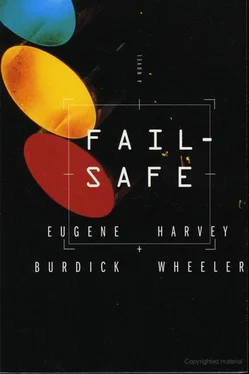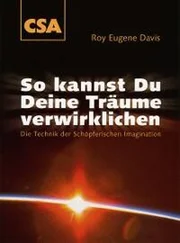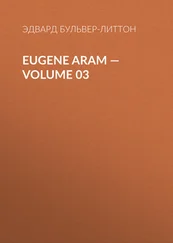“Premier Khrushchev, I think it would be wise for you to remove yourself from Moscow so that you will be out of danger,” the President said. “That will allow us to continue to negotiate even if the worst happens and the bombers get through. I pray that it will not happen, but it may.”
“I have already made arrangements to remove myself and some of my staff from Moscow by helicopter,” Khrushchev said at once, in a firm voice that suddenly toughened. “Moscow will not be evacuated. There is no time. It lies here innocent and open, defenseless. If it is destroyed there will be little time to talk, Mr. Press dent.”
“I am aware of that,” the President said. “But I will do anything in my power to demonstrate our good will. I. only ask that you not take any irrevocable step. Once you launch bombers and ICBMs everything is finished. I will not be able to hold back our retaliatory forces and then it would be utter devastation for both of us.”
“I know, Mr. President,” Khrushchev said. “We have been over that before; each of us has made the calculations endlessly in his own mind, has heard them from his advisers. But if Moscow is obliterated”—a kind of helpless rage shook his voice—“am I supposed to sit still, watch our biggest city destroyed, and then come hat in hand to you and ask that we reopen peace talks in Geneva? It would be absurd. I am not a man, we are not a people, that likes to look absurd.”
“I agree with much of what you say,” the President said. For the first time Buck saw great physical tension, even pain, in the President’s face.
There was a long hesitation. Then Khrushchev spoke again.
“I will come back on the line when I am a safe distance from Moscow,” Khrushchev said. His voice was toneless, flat, empty.
The line clicked dead.
“Mr. President,” Buck said, “may I say that you handled him beautifully. He acknowledged the possibility that they might be wrong and-”
Buck stopped. The President was not listening. His face was slack, softened by despair. He was staring at his scratch pad, searching the firm black cabalistic signs for some meaning.
Again Buck had the sense that something had slipped by him, that in the literal meaning of the words he had missed some larger import.
“You have broken him, Mr. President,” Buck said. “He is shaken.”
The President looked up. His eyes were dark, but the pupils glittered like small pools of agony.
“He is not broken, Mr. Buck,” the President said, “He has his back to the wall and he is suffering, but he is not broken. Unless we can show him that this is an accident, that we are not doing it deliberately, he will launch an all-out attack on us.”
Buck felt his stomach knot. In the rush of translation, in the thrill of the negotiation, he had forgotten the stakes. He stared at the President.
“What do we do now?” Buck whispered.
The President looked across the table at Buck. Re shook his head slowly as if to clear it.
“We do what we must,” he said slowly. “Get General Black at the Pentagon.”
While Buck put the call through the President leaned back in his chair. He put his hands over his eyes, his teeth clenched together, the muscles at the back of his jaw tightened into hard knots. Then he relaxed.
“General Black, Mr. President,” Buck said. The President held out his hand. He took the phone without opening his eyes.
“Blackie” the President said, his voice quiet and firm. “Do you remember the story of Abraham in the Old Testament? Old Bridges at Groton used to use it at least six times a year for chapel.”
Oh my God, he’s cracking, Buck thought, cracking wide open, and the whole world with him. He found himself actually looking around for means to escape, for a door to run through. But the general’s voice came back calm and reassuring.
“I remember, sir,” Black said. He stood awkwardly over Swenson, holding the red phone. The others around the table in the Pentagon War Room continued the discussion and also watched the board. Black felt a peculiar unreality about the situation. Simultaneously he sensed that this was, somehow, a time for first names, but he could not do it. The half-dozen times he and the President had met in the past few years, the President had always been warm but had called him “General Black” with a grin. But now there was a new tone in the President’s voice. Or perhaps it was the old intimate tone.
“Blackie, keep the story of Abraham in mind for the next few hours,” the President said. Then he paused. “Are Betty and the family in New York?”
“Yes,” Black said. A dread premonition came over him.
“I need your help,” the President said slowly. “Get. out to Andrews Field immediately. Further instructions will be waiting for you there. Things are not good, Blackie. I may be asking a great deal of you.”
“I’ll do what you say,” Black said. He paused. He knew the President was in some private agony. “And you do what has to be done.”
“Good luck, Blackie,” the President said.
Immediately Black wanted to call Betty-to talk with her, and with his two boys. But it was out of the question, he knew. Then he felt a wave of apprehension, vague and inexplicable. He remembered-Betty was spending the day across town with a friend. She and the boys would not be together until late afternoon. The knowledge was unsettling to Black. For a brief instant, memory of the Dream flashed back into his mind. No time. He shook the thoughts off and strode rapidly toward the door.
After hanging up, the President sat perfectly still for a full minute, his eyes dosed. Then he swung his feet from the desk, and looked at Buck.
“Tell the switchboard to get our Ambassador to Moscow and also the Soviet Delegate to the United Nations,” the President said quietly. “Put them directly onto the line which connectj us with Khrushchev. The moment that we can talk to Khrushchev open the conference line again.”
As Buck talked into the phone he looked at the President. The President’s face had undergone a strange transfiguration. Some muscles had relaxed, others had tightened, his eyes were closed. A stranger could not have guessed the President’s age. Nor the meaning of his expression. Then Buck identified it: the President’s face reflected the ageless, often repeated, doomed look of utter tragedy. A tragedy which is no single person’s but the world’s, which relates not to One man’s misfortunes, large or small, but to the human condition.
For The first time since he was a boy of fourteen, Peter Buck felt the need to weep.
On General Bogan’s desk was a “touch” phone which had not been operated in all the time that he had been at Omaha. One operated it merely by touching a button, and out of a small square box the voice at the other end of the line came out magnified and enlarged.
This particular “touch” phone was reserved for the possibility of direct communication with any potential enemy military leaders.
A peculiar aura surrounded it. It was like a piece of contaminated equipment, oddly disconcerting, unnerving, contradictory. The men who tested it did so with distaste. While almost every other piece of equipment in the room was associated with some man, was his “personal” equipment, no one wanted to be associated with the touch telephone. It was almost like the physical presence of the enemy in the War Room. Everyone knew that the phone could not actually overhear them, that it had to be passed through a number of careful checks before it was actually operative, but even so it was a totem of the enemy, awesome, ill-regarded.
Some minutes before, General Bogan had received a call from one of the President’s aides telling him to activate the touch phone as arrangements were being made for direct radio communication with Soviet tactical officers in Russia. Now the light below the touch button glowed red. General Bogan quietly reached forward and pushed the button. There was utter silence in the room. Even those men who were out of hearing range watched tensely.
Читать дальше











